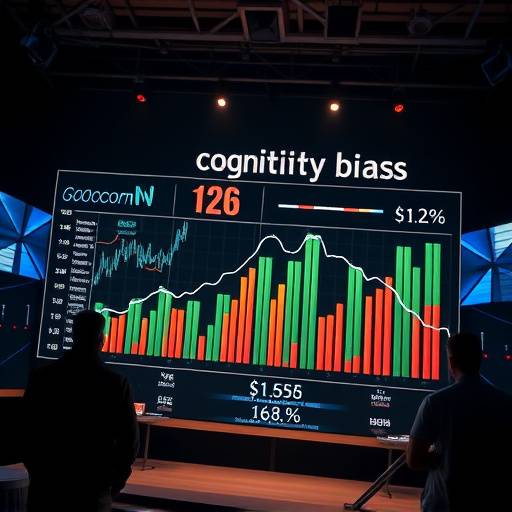Psychology of Gaming
Exploring the profound psychological effects of video game mechanics on players.
Psychology of Reward Systems

Video games are meticulously designed with reward systems that tap into the core of human psychology. These systems are not merely about providing in-game advantages; they are carefully calibrated to stimulate the brain's reward pathways, primarily through the release of dopamine. Dopamine, a neurotransmitter associated with pleasure and motivation, is released when players achieve goals, complete quests, or receive virtual items. This creates a positive feedback loop, encouraging continued engagement and reinforcing specific behaviors within the game.
The effectiveness of reward systems lies in their variability and unpredictability. Games often employ variable ratio schedules of reinforcement, where rewards are given after an unpredictable number of responses. This creates a sense of anticipation and excitement, as players are unsure when the next reward will arrive. This is particularly evident in games with loot boxes or gacha mechanics, where the element of chance adds an extra layer of allure.
However, the reliance on reward systems can also have negative consequences. Excessive gaming, driven by the pursuit of virtual rewards, can lead to addiction, neglecting real-life responsibilities, and social isolation. Furthermore, the constant stimulation of reward pathways can desensitize players to real-world pleasures, leading to a diminished sense of satisfaction in everyday activities. GameEthos advocates for a responsible approach to reward system design, prioritizing player well-being and promoting balanced engagement.
Cognitive Biases in Games

Cognitive biases, inherent flaws in human reasoning, play a significant role in shaping player decisions within video games. Game designers often exploit these biases to influence player behavior, create challenging scenarios, and enhance the overall gaming experience. Understanding these biases is crucial for both developers and players, enabling more informed decision-making and a more balanced perspective on game mechanics.
One prevalent bias is the availability heuristic, where individuals overestimate the likelihood of events that are easily recalled. Games can exploit this by prominently displaying dramatic or rewarding outcomes, leading players to believe that these outcomes are more common than they actually are. This can encourage players to take unnecessary risks or invest heavily in activities with low probabilities of success.
Another common bias is the sunk cost fallacy, where individuals continue to invest in a failing project or endeavor due to the resources they have already committed. In games, this can manifest as players spending excessive time or money on a particular character or item, even if it is no longer enjoyable or beneficial. The fear of losing their initial investment drives them to persist, despite the diminishing returns.
The anchoring bias also influences players' perception of value and worth. By presenting an initial reference point, such as a high price for a virtual item, developers can make subsequent prices appear more reasonable, even if they are still inflated. This bias can lead players to overspend on in-game purchases, driven by the perceived value relative to the initial anchor.
GameEthos promotes awareness of cognitive biases in gaming, encouraging players to recognize these tendencies and make more rational and informed decisions. By understanding how these biases affect their judgment, players can enjoy games more responsibly and avoid falling prey to manipulative tactics.
Emotional Impact of Gaming
Video games have the power to evoke a wide range of emotions, from joy and excitement to frustration and sadness. These emotional experiences can have a profound impact on players' well-being, shaping their attitudes, behaviors, and relationships. Understanding the emotional dimensions of gaming is essential for promoting positive experiences and mitigating potential negative effects.
Games can provide a sense of accomplishment, mastery, and social connection, contributing to feelings of self-esteem and belonging. Cooperative games, in particular, foster teamwork, communication, and empathy, strengthening social bonds and promoting prosocial behavior. The shared experiences and collaborative problem-solving can create lasting friendships and a sense of community.
However, games can also elicit negative emotions, such as anger, frustration, and anxiety. Competitive games, especially those with high stakes, can lead to stress and aggression, particularly when players experience repeated failures or perceived unfairness. Furthermore, games that depict violence, trauma, or other disturbing content can trigger negative emotional responses, especially in vulnerable individuals.
It's important to acknowledge the potential for addiction and its devastating effects on emotional regulation. Excessive gaming can lead to increased anxiety and depression, coupled with a diminished capacity to engage in real-world activities. Individuals grappling with this issue may struggle to manage their emotions, potentially leading to isolation and dependency.
GameEthos emphasizes the importance of emotional regulation and responsible gaming habits. We encourage players to be mindful of their emotional responses and to seek support when needed. We also advocate for responsible game design that minimizes the potential for negative emotional effects and promotes positive and enriching experiences.
Player Motivation
Understanding player motivation is crucial for creating engaging and enjoyable gaming experiences. Motivation is the driving force behind player behavior, influencing their choices, strategies, and overall engagement with the game. By identifying and catering to different types of player motivation, developers can create games that resonate with a wide audience and provide long-lasting enjoyment.
Richard Bartle's player typology identifies four primary categories of players: Achievers, Explorers, Socializers, and Killers. Achievers are driven by the desire to progress, earn rewards, and master the game mechanics. Explorers are motivated by discovery, curiosity, and the desire to uncover hidden secrets. Socializers seek social interaction, collaboration, and community. Killers enjoy competition, dominance, and asserting their power over other players.
Self-Determination Theory provides another framework for understanding player motivation. This theory posits that individuals are intrinsically motivated when they experience autonomy, competence, and relatedness. Autonomy refers to the sense of control and freedom in making choices. Competence involves feeling capable and effective in mastering the game mechanics. Relatedness encompasses the sense of connection and belonging within the game community.
Games can enhance player motivation by providing clear goals, meaningful choices, opportunities for skill development, and avenues for social interaction. Personalized experiences, tailored to individual player preferences, can further enhance motivation and engagement. By understanding the diverse motivations that drive players, developers can create games that are both challenging and rewarding, fostering a sense of accomplishment, community, and lasting enjoyment.
GameEthos believes that understanding player motivations is paramount to crafting ethically sound games. By prioritizing player agency and providing fulfilling experiences, the gaming community can contribute to a future where gaming is a positive and enriching activity for all.